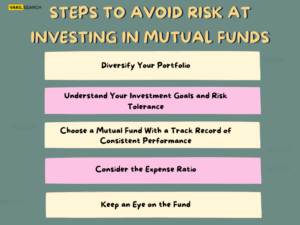Mutual Fund Scheme are a popular investment option in India due to their potential for high returns and the ease of diversification they offer. However, with various types of mutual fund schemes available in the market, investors need to understand the risks associated with each scheme to make informed investment decisions.
Overview: Mutual Fund Scheme
When it comes to mutual fund scheme in India, equity funds are generally considered to be the highest-risk schemes.
Equity mutual funds invest primarily in stocks, which are subject to market volatility and can experience significant price swings in a short period. The risk of losing money in equity mutual funds is higher than other mutual fund schemes as they are directly linked to the performance of the stock markets.
Small-Cap Funds
Within equity mutual funds, small-cap funds are considered to be the riskiest. Small-cap funds invest in companies with a small market capitalization, which means they have a lower market share and are less established than larger companies. These companies have the potential for high growth, but they are also highly vulnerable to economic and market conditions. As a result, small-cap funds carry a high level of risk and are suitable for investors with a high-risk appetite.
Mid-Cap Funds
Mid-cap funds, which invest in mid-sized companies, are also considered to be high-risk mutual funds. While mid-cap companies are more established than small-cap companies, they are still vulnerable to market and economic conditions, which can cause significant fluctuations in their stock prices.
Sectoral Funds
Another type of mutual fund scheme that carries a high level of risk in India is sectoral funds. Sectoral funds invest in companies operating in a specific industry, such as technology, healthcare, or banking. These funds are highly concentrated, with a significant portion of the portfolio invested in a single sector. As a result, sectoral funds are highly vulnerable to sector-specific risks and can experience significant losses if the sector experiences a downturn.
International Funds
International funds, which invest in companies operating outside India, also carry a high level of risk. These fundraising are exposed to foreign currency fluctuations, political instability, and economic risks in the countries they invest in. The risk associated with international funds is also influenced by the currency exchange rate, which can add an additional layer of volatility to the investment.
Debt Mutual Funds
Apart from equity mutual funds, debt mutual funds in India also carry a certain level of risk. Debt mutual funds invest in fixed-income instruments such as government bonds, corporate bonds, and money market instruments. The risk associated with debt mutual funds is primarily linked to the credit quality of the issuer. A sudden downgrade in the credit rating of the issuer can result in a significant drop in the value of the bonds held by the fund, leading to losses for investors.
How to Avoid Risk at Investing in Mutual Funds?

Investing in mutual fund scheme always involves a certain level of risk, but there are several steps you can take to reduce your risk:
- Diversify your portfolio: Investing in a mix of different types of mutual funds can help to spread your risk. This means investing in mutual fund scheme that hold a mix of stocks, bonds, and other assets rather than just one type.
- Understand your investment goals and risk tolerance: Understanding your investment goals and risk tolerance is important. You should invest in funds that align with your investment goals and that match your tolerance for risk.
- Choose a mutual fund with a track record of consistent performance: Look for mutual funds with a track record of consistent performance over a period of several years. This can give you some indication of how the fund is likely to perform in the future.
- Consider the expense ratio: The expense ratio is the annual fee that the fund charges to cover its expenses. Look for a mutual fund with a low expense ratio to keep your costs down.
- Keep an eye on the fund: Monitoring your mutual fund periodically can help you stay aware of any changes that may affect its performance. Keep up-to-date with the fund’s holdings, performance, and overall market trends.
Conclusion:
In conclusion, equity mutual funds, particularly small-cap funds, mid-cap funds, and sectoral funds, carry a high level of risk in India. International funds and debt mutual funds are also considered high-risk schemes due to their exposure to foreign currency fluctuations and credit quality risks, respectively.
While these mutual fund schemes have the potential for high returns, they are also vulnerable to market volatility and sector-specific risks. As a result, investors need to carefully assess their risk appetite and investment goals before investing in these schemes. It’s always advisable to diversify the portfolio by investing in multiple mutual fund schemes with varying levels of risk to minimize the overall risk and optimise the potential for returns.

